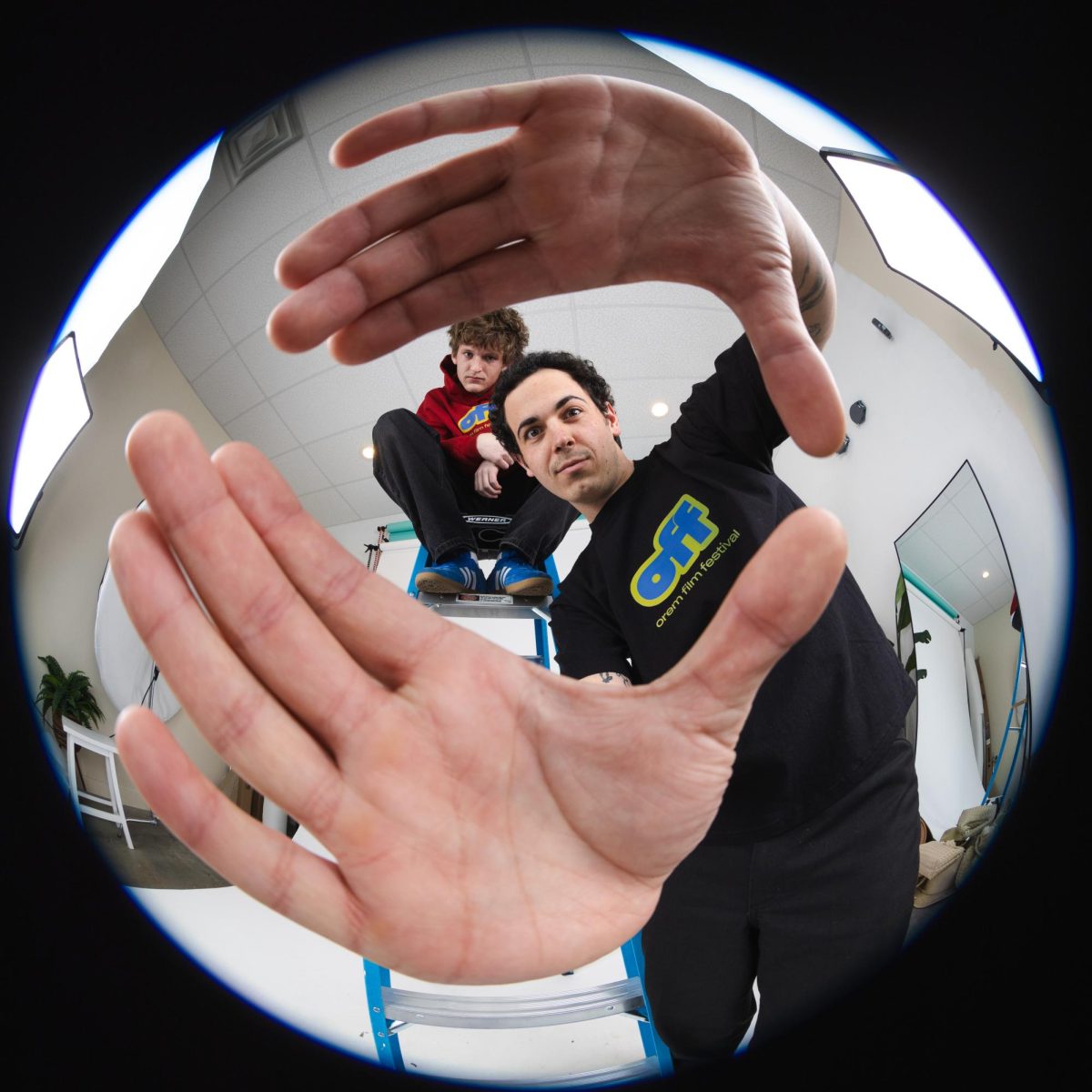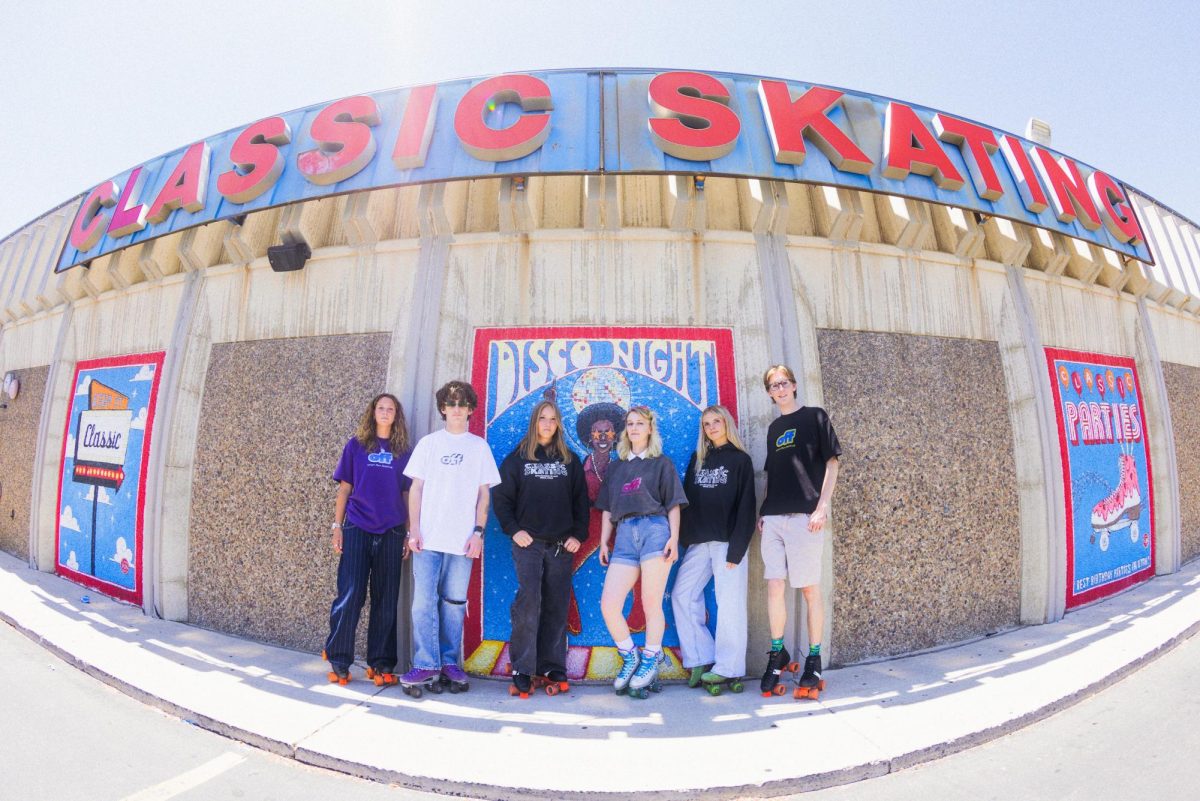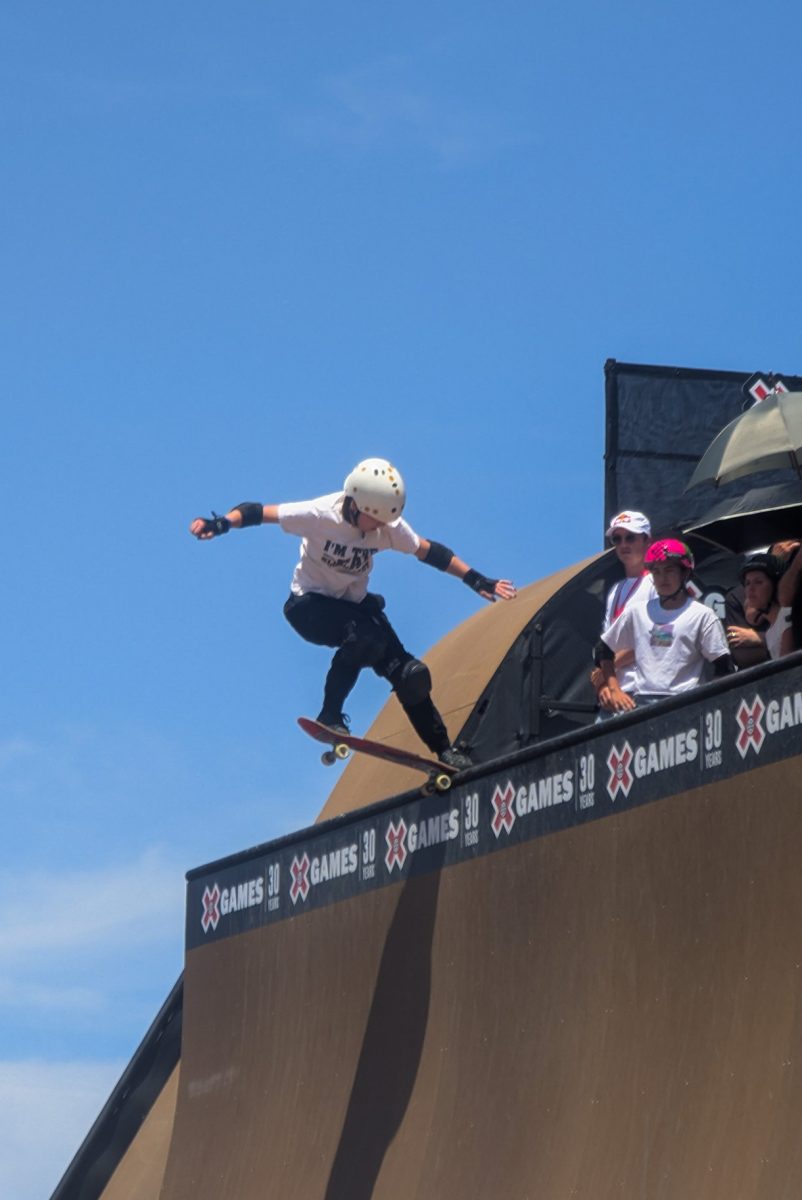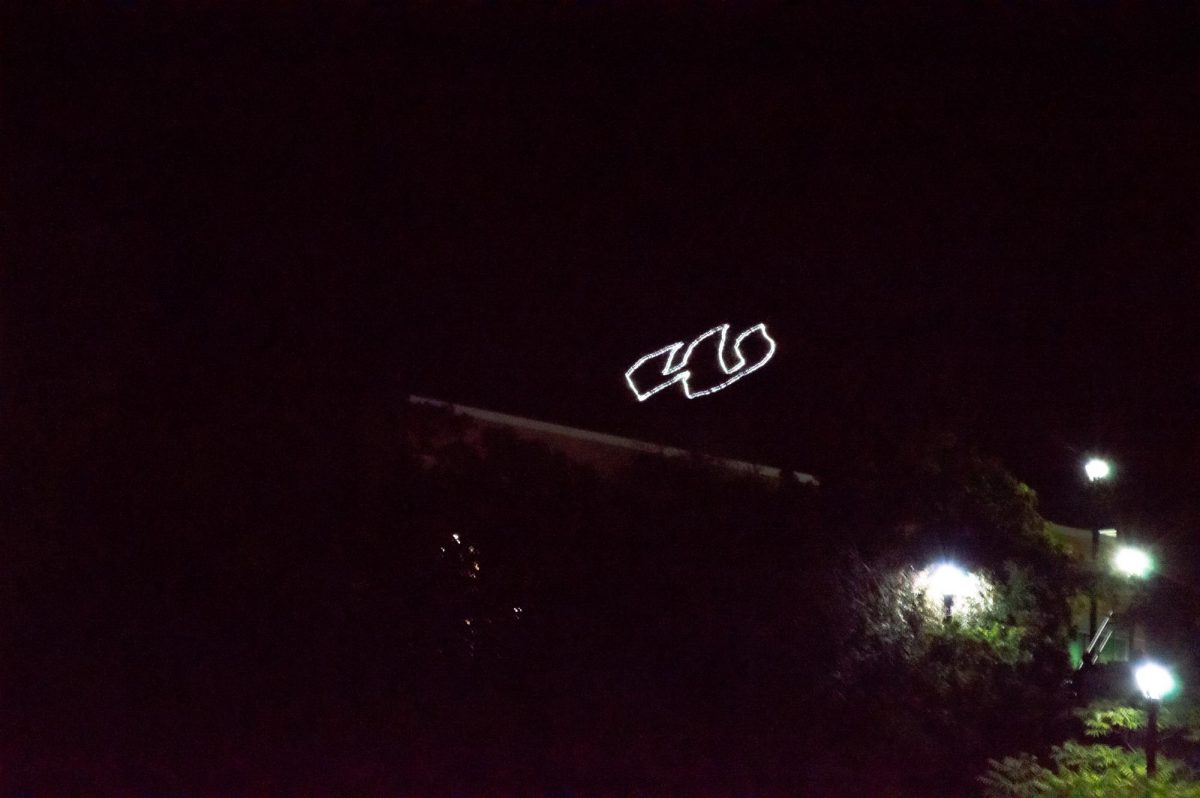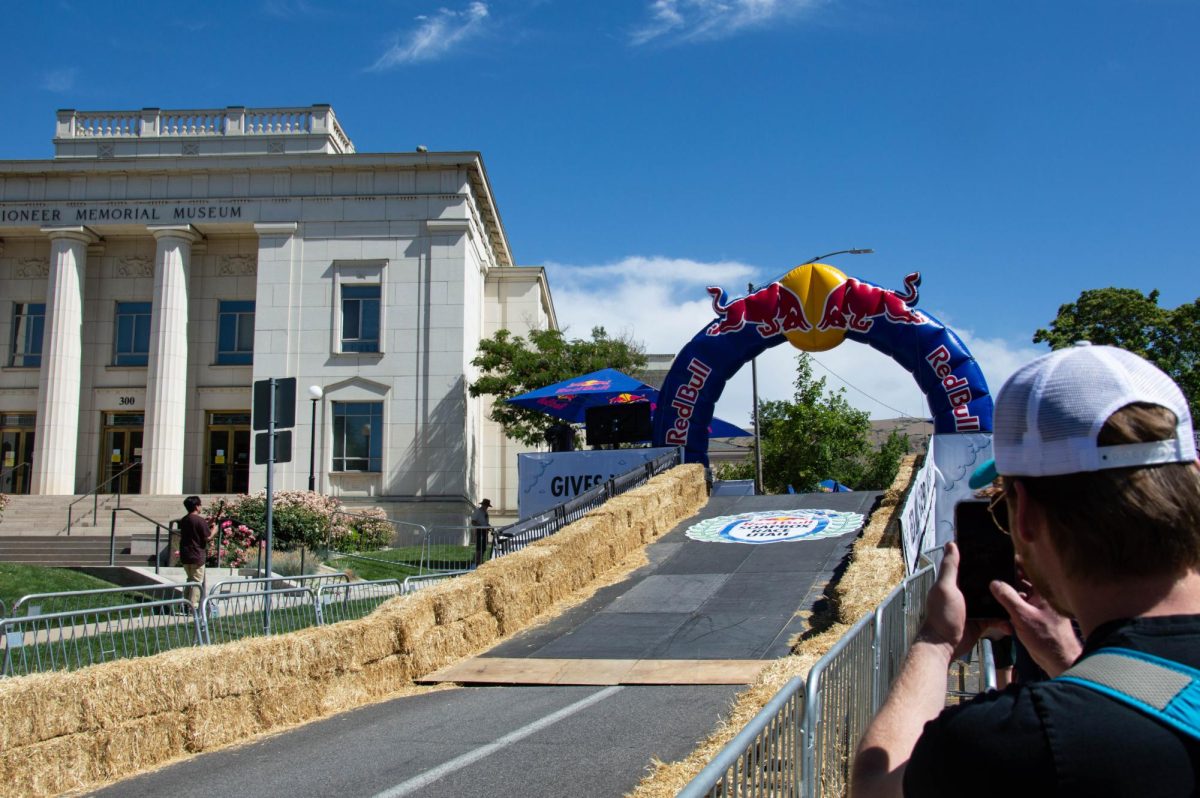
Robots, coaches and capable young minds filled the Swenson Gym at Weber State University on Saturday to compete in the FIRST Tech Challenge.
The FIRST Tech Challenge is a robotics competition that allows students in grades seven through 12 to design, build and program robots to compete in a competition. The FIRST Tech Challenge drew teams from Utah, Wyoming, Idaho, Montana, Colorado and Arizona.
Dana Dellinger, the outreach and recruiting coordinator for the College of Applied Science and Technology, took part in hosting the FIRST Tech Challenge at Weber State, “FIRST is an acronym,” Dellinger explained. “Meaning ‘For Inspiration and Recognition of Science and Technology.’ The competition is a great way to bring potential students to Weber State and is a great way to build young engineers.”
The morning was filled with check-ins and inspections for all the teams, but by early afternoon the first qualifying matches were in full swing. Teams were randomly partnered to compete together during the qualifying matches. Teams with a high number of points after the qualifying matches were allowed to advance to the elimination matches later in the day.
Points were awarded to teams for completing different tasks during the qualifying matches. A few of these tasks included driving from the platform onto the playing field, releasing a kickstand to distribute balls onto the playing field and moving balls into several goals set up in the playing field.

The first part of the qualifying matches called for the robots to compete autonomously, meaning that the teams had to program them to do the specific task. After two minutes of being ran by a program, the teams were then allowed to pick up the controllers and guide the robots themselves.
“The top three winning teams from today will advance to the California Super Regionals,” said Dellinger.
Norman Mckenna and Layla Jenson, from Altamont, Utah, made up an entire team by themselves. “This is our first year competing,” said Mckenna, their coach, “and it has been great. We are the first team from the Uintah Basin to be competing in the FIRST Tech Challenge so that’s pretty exciting.”
Both Mckenna and Jenson attributed their interest in the competition to their math teacher, “Our math teacher told us about the competition,” Mckenna said. “And it sounded fun so we just decided to do it.”
After qualifying matches were over, teams who had earned enough points then qualified for the elimination matches and were allowed to form alliances with other teams.
“It really comes down to what will work best for each team,” said Dellinger. “Teams can ask other teams if they would like to form an alliance and the teams can either accept or deny respectfully. It isn’t all about which team had the highest score either, alliances can be formed depending on the need of the team.”

Mary Hall, the coach of the Skeleton Crew from Salt Lake City said she had enjoyed the competition so far.
“This is our first year competing here and it has been a huge learning curve for us,” said Hall.
The Skeleton Crew is a neighborhood team from Salt Lake City and are not affiliated with any school. “As a neighborhood team it has been a lot of fun to come together and make this happen. We wanted to compete in something new and challenging,” said Hall.
Avery Parrish, captain of the DaVinci Dragons from the DaVinci Academy of Science and the Arts in Ogden, said the day had been fun but had not come without challenges.
“We have had a few problems with the coding today, especially during the autonomous part of the round,” Parrish said. “Other than that the day has been going fine.”
Dellinger explained that the competition helps show the youth that there are several solutions to every problem and there is no one right way to arrive at the solutions.”We are committed to putting on these types of competitions because this is a way of building innovative youth in our community. It gives them a chance to work hard and not be afraid to fail. Sometimes we can get caught up thinking that there is only way to solve a problem,” she said.
For more information about the competition and how to get involved in future competitions visit the FIRST website.


